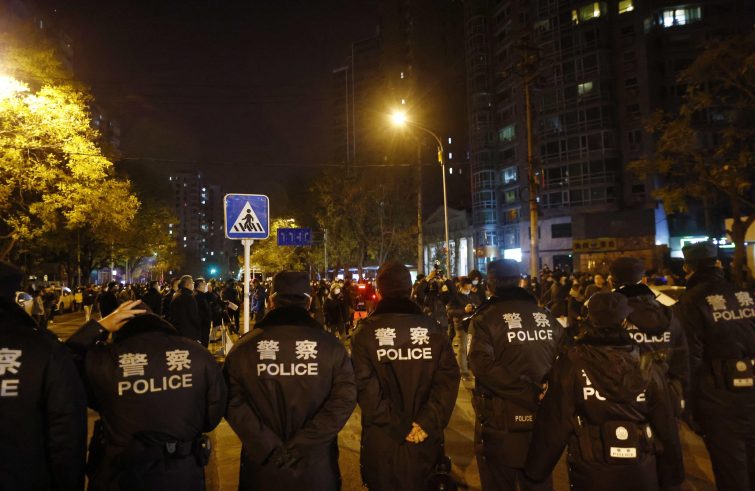
“‘There is a fundamental problem: the bond of confidence that existed between the people and their leadership was shattered. Two and a half years ago, the people trusted the party to a very high extent, if not completely. But that confidence non longer exists today. And without confidence, the entire system collapses. The Party is shrewd, intelligent and creative. And it knows it. It is a question of recovering that confidence.” Francesco Sisci, sinologist, shared his analysis of what has been happening over the past few days in China, where protests against the lockdown measures have been taking place in at least 6/7 cities across the country. From Beijing to Shanghai, protesters took to the streets over the weekend. The Chinese government decided to tighten security operations in cities as a result of the protests. Police officers, vehicles and controls intensified to the extent that protesters who had taken to the streets received calls from the police inquiring about their whereabouts over the past few days. The area of Urumqi Road in Shanghai, where the biggest protests took place and where slogans against President Xi Jinping were heard, is under close surveillance. The area has been cordoned off and cafés in the vicinity were requested to close by 10pm, officially for Covid -related measures. Reportedly, protesters were arrested over the past few hours, at least four, while one of the persons detained has reportedly been released.
Mr. Sisci, can you tell us what is happening?
“The people have had enough.
They have been locked up in their homes for two and a half years. So far the people of China believed that it was the best way to overcome the pandemic. Until, unexpectedly, the World Cup began and the Chinese population saw that life is back to normal in the rest of the world, while people in China are still in lockdown and there are no clear plans as to when these lockdowns will end and how.
Where did they go wrong?
They thought they could control this virus as they did with SARS in 2003. Back then, thanks to extensive controls throughout society, the virus disappeared after a few months. But this virus did not disappear. It changed, it spread across the world and returned. Traditional measures did not work. They tried to develop an effective vaccine but they failed. They thus ended up with an epidemic management system that in the long run failed to defeat the virus. They should have changed course immediately, agreeing to the use of a vaccine from abroad while strengthening the national health system.
They did not. Instead, they decided to pursue the path of lockdowns and controls. So today the bubble has finally burst.
Who took to the streets?
Ordinary people. Students of course, but those protesting are ordinary people who have had enough with being imprisoned at home for the past two and a half years.
These street protests bring to mind the revolutionary atmosphere of Tiananmen.
This is not Tiananmen. That was a highly political protest and the street demonstrations were reflected in the divisions within those who held power. Today, power is centralised and the protests are not reflected in internal struggles. However, what you say is true. It signals that the people’s confidence has started to collapse.
How did they expect to regain confidence if they strengthen police presence, if they step up controls on social media and TV news reports?
First of all, it should be said that as far as we know the protesters who took to the streets are still a minority. A few tens of thousands, not a million. Of course, they are the tip of the iceberg, the symptom of a greater problem.
To tackle it, the Chinese government has adopted the carrot-and-stick approach. The carrot is the easing of lockdown measures in some cities and the stick are all the steps taken to prevent the protests by deploying policemen on the streets and carrying out targeted arrests. There remains the underlying problem of the wound that has been inflicted on the people’s confidence. The Party is no fool and it will strive to mend this rift.
In your opinion, are the Party and President Xi Jinping more afraid of the spread of Covid or of the Chinese people’s growing resentment against them?
If there is an outbreak of Covid and millions of people die then certainly the wound in people’s confidence in the government will grow deeper. These two aspects are intertwined. There are two underlying problems. First of all, people have to be vaccinated. The other problem is that there needs to be a change in the way of thinking and especially in the way of dealing with problems. In this case, there should be a clear vision of the path forward in order to emerge from Covid once and for all. A situation of emergency can only last so long.










